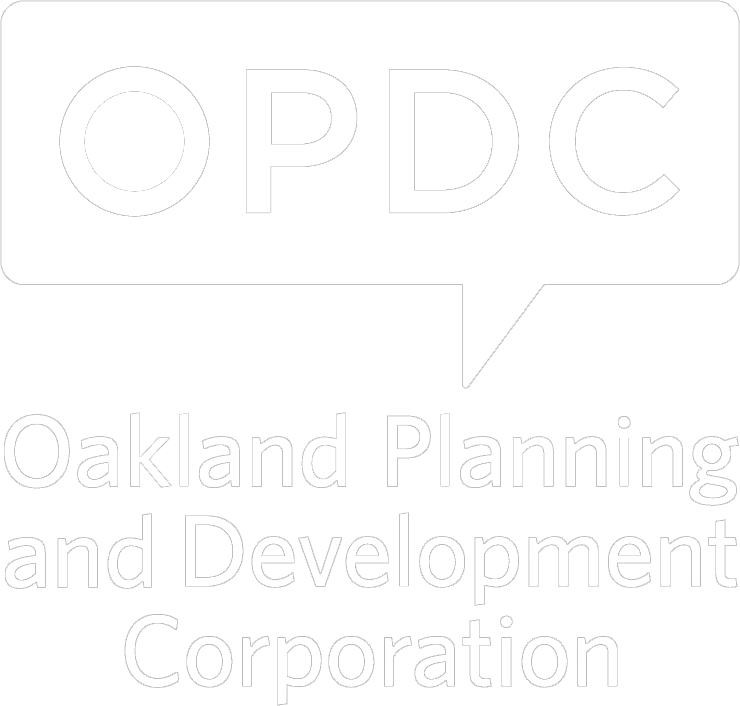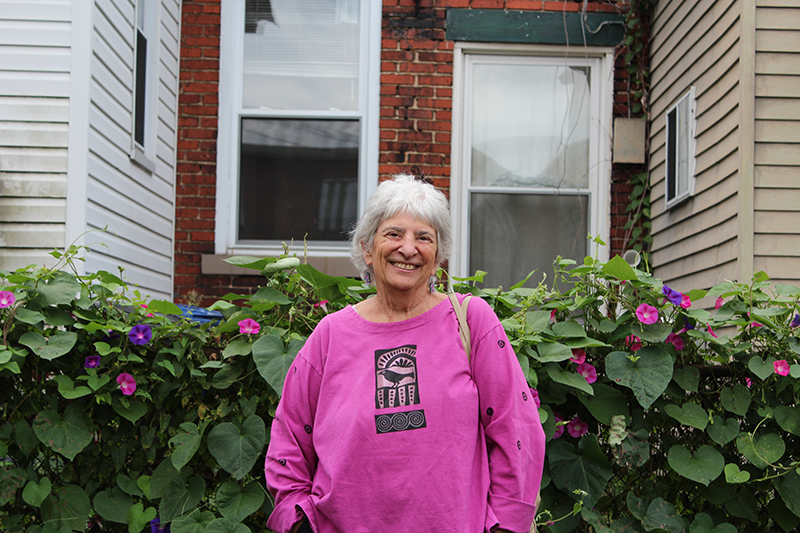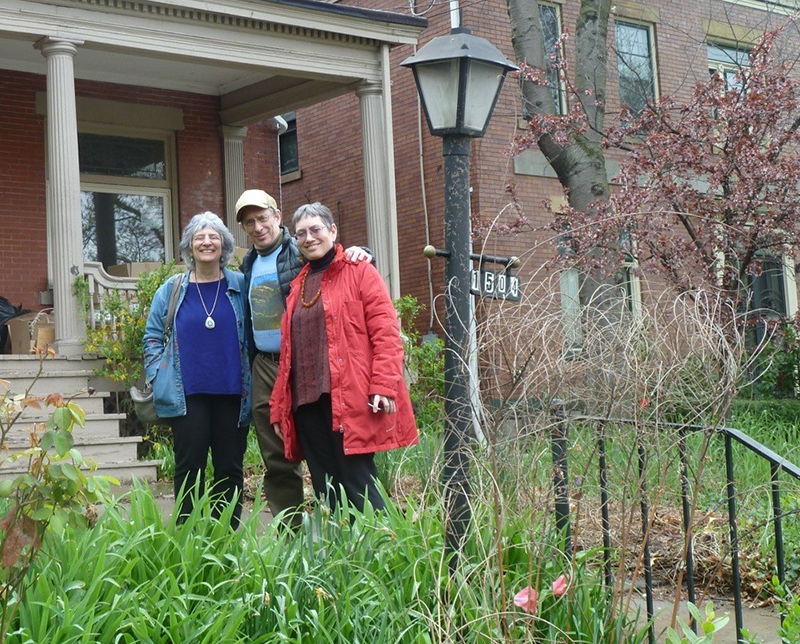Investing on Return
Kim Fellner
By Kim Fellner
Sometimes the past gains unexpected resonance in the present, as it did this year for my family and OPDC.
At the age of 52, my mother, Anita Fellner—Holocaust survivor and dressmaker extraordinaire—assessed her financial situation and determined that she and my father needed more economic security for their old age. With one of her women friends, she began buying small rental income properties in the Oakland neighborhood of Pittsburgh, just south of the university. They purchased their first house in 1977 for $8,200. Eventually, my mom owned seven small single-family houses and two duplexes.
When my parents died in 2011, my siblings and I inherited the houses, as well as our mother’s long-time property manager. But this year, when our manager was ready to call it quits, we decided it was probably time for us to do the same.
On May 11, 2022, my brother Gene, my sister Jane, and I concluded the sale of my mom’s houses to OPDC. We were thereby able to return them to Pittsburgh’s dwindling stock of affordable housing and affirm our mother’s values—and our own.
I’ve always marveled that my mother, who was forced out of school by the Nazis at the age of 11 and escaped Germany on a children’s transport, was able to leave us this inheritance. But from the moment she arrived in the U.S. as a young war bride, it was clear that she and the idea of the American Dream were made for each other.
Anita Fellner at work in the dining room-sewing center in NYC
Together with my father, an opera musician who had also fled the Nazis, she set to work constructing a modest life and well-functioning family, first in New York City and, starting in 1965, in the Squirrel Hill neighborhood of Pittsburgh. With a flair for entrepreneurship and a well-honed sense of integrity, my mother built a lively dressmaking practice. Women of all ages and incomes came to our home as customers and remained as friends.
When we kids flew the coop, my mom turned the third floor of the Squirrel Hill home into an apartment and advanced from there to her Oakland real estate foray. Although she looked forward to the extra income, she had a personal affection for the houses she chose to own. “These are lovely little homes,” my mom told me at the time, “Are you sure you don’t want to live in one of them? They’re just right for a working person or small family.”
As it happens, my mom wasn’t the only family member to invest in Oakland. In 1970, as a graduate student at the University of Pittsburgh, I had helped to launch Peoples Oakland, a community group to confront the expansion of the university and the medical center into the surrounding neighborhoods. I learned my organizing craft on the same streets where my mother would become an unlikely property owner. Peoples Oakland wove together primarily Irish, Italian, and Black residents, plus a smattering of progressive students and academics, to confront the threat to their communities. Winning a greater voice in the city planning process, we managed to retard the expansion, but mostly failed to stop it.
The three Fellner siblings: Kim Fellner, Gene Fellner, and Jane Fellner (2011)
I left Pittsburgh in 1973, and my brother and sister soon left for college. Although we often visited my parents, none of us ever lived there again. But when it came time to deal with my mom’s houses, we didn’t want them to become yet another speculative real estate venture. Seeking an alternative, I was able to track down an old colleague from my Peoples Oakland days. “Well, as it happens, there’s an Oakland Planning and Development Corporation,” my colleague told me. “And they recently founded an Oakland Community Land Trust.”
My subsequent conversation with OPDC Executive Director Wanda Wilson confirmed our shared interest to retain owner-occupied affordable housing and cushion the community against the steady march of the University of Pittsburgh, UPMC, and the developers who were demolishing single family homes to build pricey apartment buildings. “If you need to get this done in a few weeks, I won’t be able to do it,” Wanda warned me. “You wouldn’t believe the paperwork and financing involved. But if you have a few months, we’d love to make this work.”
The process turned out to be remarkably smooth. For me, the crowning touch was when I discovered that Andrea Boykowycz, the daughter of two fellow activists from my Peoples Oakland days, is now the deputy director of OPDC. It somehow makes the return of our mother’s houses to the community feel like a perfect circle, an enduring echo of resistance, respect and remembrance.
We think my mother would have been pleased. I know I am.



